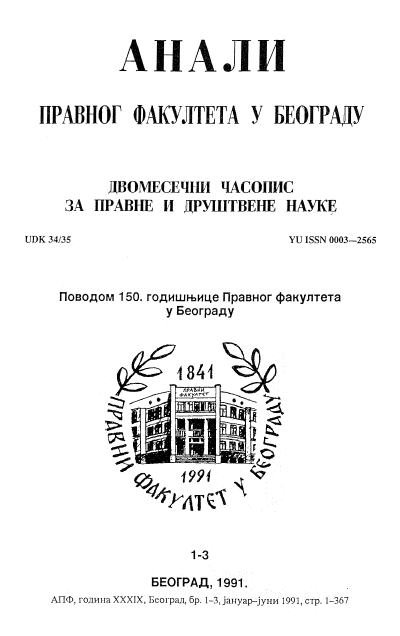УГОВОР О ГРАЂЕЊУ У РИМСКОМ КЛАСИЧНОМ ПРАВУ
THE CONTRACT OF CONSTRUCTION IN CLASSICAL ROMAN LAW
Author(s): Jelena DanilovićSubject(s): Roman law
Published by: Правни факултет Универзитета у Београду
Keywords: Contract for personal services; Risk; Roman law; Yugoslav law
Summary/Abstract: The contract of construction has only, recently, in the countries of European continental law, become in independent contract in teh sphere of economic law and separated from the contract for personal services. Under the influence of the Roman, namely Pandects law, it has been more or less connected in great codifications to that contract. In Yugoslav Law on Obligation Relations, too, in article 630, the contract of construction is defined as a contract for personal services, although already in the subsequent text its particularities are emphasized. Also, by singling it out into a separate Chapter XIII (immediately after the contract for personal services), it is however regulated as an independent named contract. In contemporaty Yugoslav theory, too, only recently the opinion prevailed that it should not be connected to the contract for personal services. It is noted here that already in classical Roman law all particularities of thelatter contract have been singled out - the fact that the operator undertakes the obligation to construct in his own overhead a specific object. But classical lawyers did not single it out of the contract for personal services, which was also die case with not taking out entirely that contract from the entity of contracts known as locatio conductio. However, they did make separate rules to be applied only to the contract of construction. These rules have been created by following the customs and practice at the time of enormus building up of Rome at the beginning of the Principate. Beginning with the contracts entere into in practice and corresponding litigation, classical jurists have singled out the contract of construction from the number of other kinds of contract whict were subject to the rules of locatio conductio operis faciendi, but stull they did not make it independent.
Journal: Анали Правног факултета у Београду
- Issue Year: 39/1991
- Issue No: 1-3
- Page Range: 87-101
- Page Count: 15
- Language: Serbian

